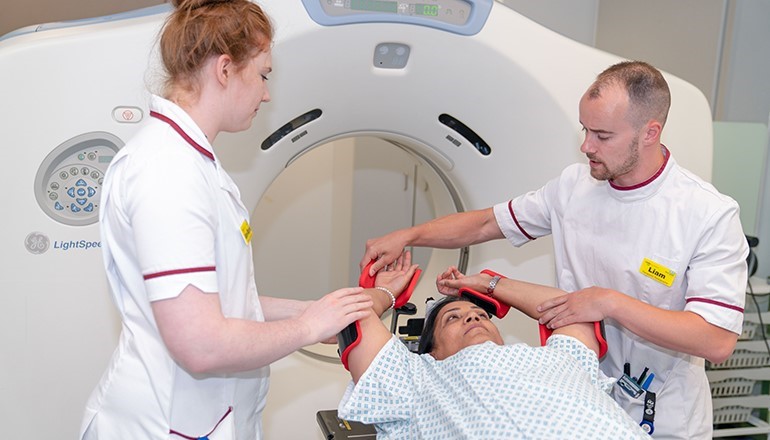The breast imaging and diagnostic workforce is facing workforce shortages at the moment. Here's how we want to tackle it.
Breast cancer is a tough enough problem to deal with already. With shortages in imaging and diagnostic departments, however, it's not getting any easier.
Tackling workforce shortages
The breast imaging and diagnostic workforce is under extreme pressure with high vacancy rates, ever-increasing patient demand and a large number of anticipated retirements.
Workforce shortages are being addressed in a number of ways through partnership working, including a new apprenticeship for assistant practitioners who support the radiography team, development and training for mammographers, advanced and consultant practitioner roles and a campaign to attract mammographers back to practice. However, these have not kept pace with staffing requirements.
A new credential to train breast clinicians
The Royal College of Radiologists (RCR) is working with the Association of Breast Clinicians (ABC) and Health Education England (HEE) to develop a credential for training breast clinicians. These doctors will undertake three years of training within breast units associated with a breast screening programme and linked with an established radiology training programme.
The programme will create accredited breast clinicians trained in breast imaging, clinical examination and genetic risk. Once completed, it will allow them to lead screening services, family history clinics and work in symptomatic clinics, providing much-needed support for the breast imaging, clinical and family history breast services.
Starting August 2019 – are you interested in applying?
An initial three-year pilot will commence in August 2019 with ten trainees spread across a number of English centres. The pilot will be rigorously evaluated, and it is to be hoped that in time it will become a recognised training pathway.
Job adverts for the ten training places are being added over the next couple of weeks. Visit the RCR website to find further information about the programme including details of pilot site locations and links to recruitment information for each site.
Although the HEE-funding for the pilot is restricted to England, there is nothing to stop screening units in the devolved nations from taking part by recruiting and fully-funding trainees on to the credential training programme.
For more information about the credential please contact the RCR.
Dr Caroline Rubin is a Consultant Radiologist with a special interest in Breast Imaging. She commenced her Consultant post in 1988 at the start of the Breast Screening Programme. As Vice President of the Faculty of Clinical Radiology at the Royal College of Radiologists, workforce issues are high on her agenda and in particular those relating to breast imaging.
For other ways to get involved and do your bit to help those with breast cancer, check out our volunteering page.
